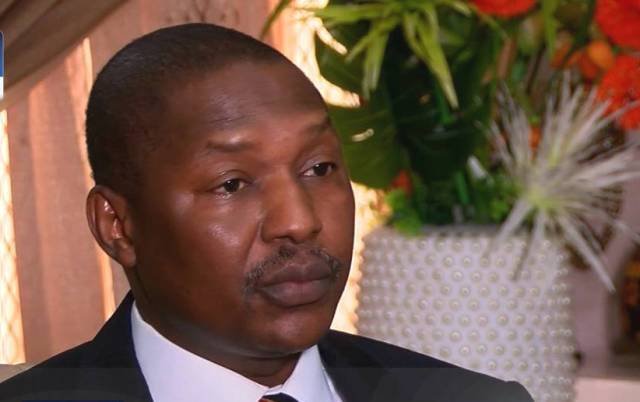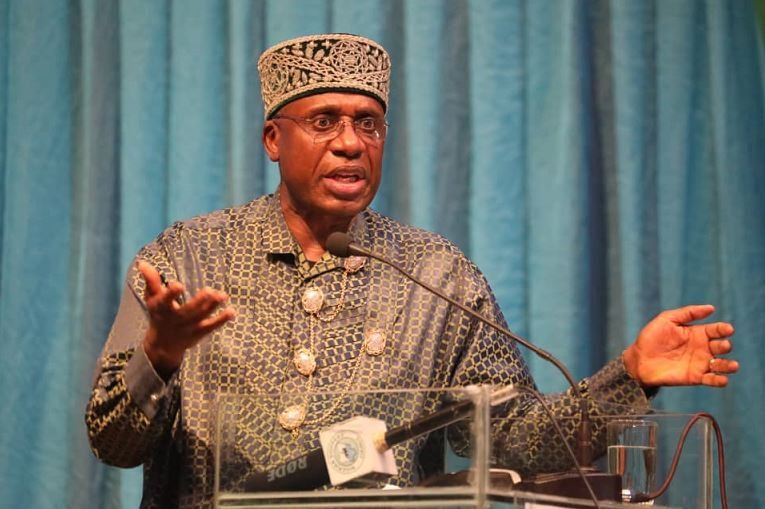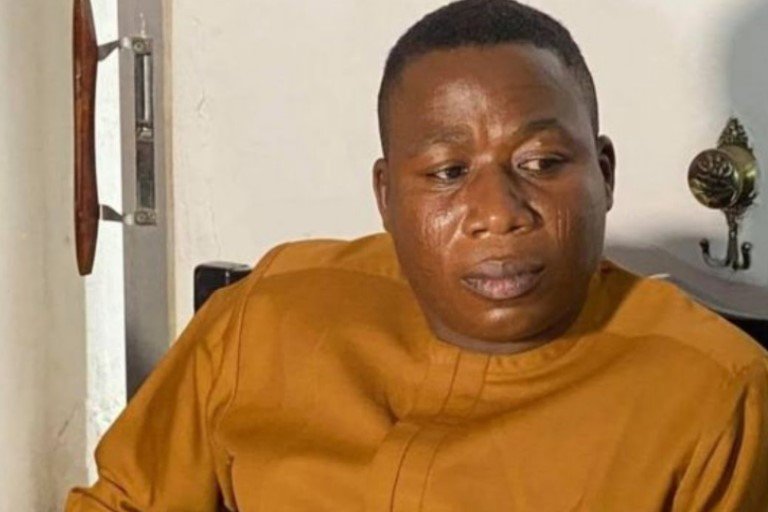News that the Federal Government had secured a ruling to redefine bandits as terrorists was met with different reactions. In some quarters it was seen as a win, in some it was greeted with dismissiveness and yet in others it was viewed with concern and trepidation.
The ruling, and subsequent gazette seems a forced hand and another incarnation of the specter of the mischievous monster; the Doctrine of Necessity.
Following the ruling, a couple of things were determined and established.
1) 2 groups of bandits were named clearly and directly. These were subsequently proscribed as terrorist groups.
2) The courtesy of the proscription was subsequently extended to other bandit groups perpetuating similar criminal acts.
Point (1) was used to establish the appellation of the group(s) of bandits. This is because a group without a name or known leadership cannot be proscribed as terrorists. This is despite the clamor by some of our poorly reasoning citizens who had called for a blanket proscription subsequent to the proscription of the terrorist group, IPOB.
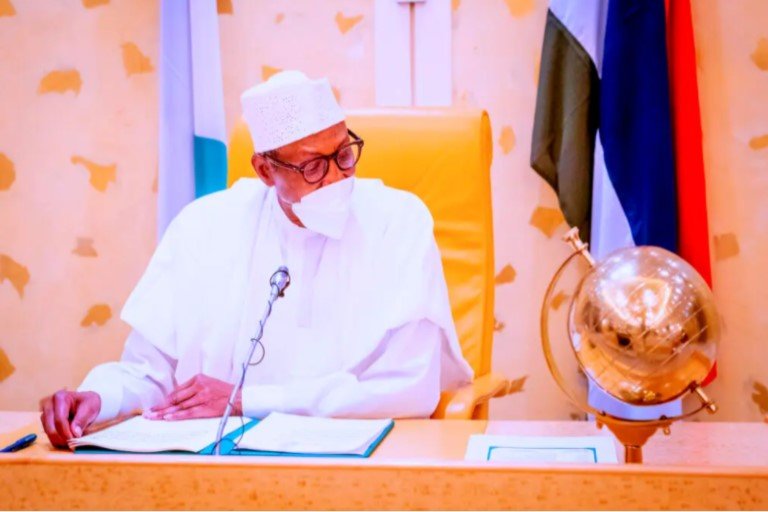
Point (2) is the tricky bit. The courtesy and foundations for a blanket proscription was established and given precedence.
How did we get here?
The continued fermentation of insecurity challenges in the country was a matter of grave concern. At a point, it became the rallying point to denigrate every other progressive projects or aspirations of the administration. It had literally become a match to light the flames of national disappointment, divisions and destabilization.
The Nigerian Police Force (NPF) was overwhelmed (poorly funded, poorly motivated, poorly armed and/or complicit in the acts of banditry) and the Nigerian Armed Forces was drafted in to subdue the situation.
Unfortunately, previous administrations had neglected the military as well and it suffered from the same highlighted challenges as the NPF. Matters came to a head in the penultimate administration of President Goodluck Jonathan wherein the Presidency, in cahoots with other influential persons and organizations, colluded to steal public funds, under the guise of weapons procurement, to facilitate the President’s reelection campaign.

This hydra headed security challenge was one of the key issues the new administration at 2015 promised to redress and disentangle. What was apparent was that to make a difference, the fortunes of the Nigerian military forces had to be right-aligned.
The insecurity challenges assumed even darker aspects under the new administration. Insecurity was weaponized on the altars of ethnicity, religion and partisan politics. There was a massive, disturbing, internal struggle for the very soul of the nation.
The government had to address the issues of distrust by the global armament suppliers (the previous administration had demonstrated extreme complicity with insurgents, terrorists and bandits) as well as seek willing sellers. The US had previously supported the country’s efforts to fight the terrorist group, Boko Haram, providing personnel and resources. The US had to withdraw as resources were being diverted/stolen, intelligence being compromised and trust in the commitment of the government to fight the insecurity development was dwindling.
After jumping the hurdle of proving commitment, the country was also subjected to caveats and conditions for procurement. In the pursuit of procuring and upgrading our military’s offensive might, some curious conditions were given. This is a misnomer because normally, subsequent to the transfer of ownership, the new owner of the arms and ammunitions should be able to independently determine how to deploy its acquisitions. The country was in dire straits and could not afford the arrogance of sovereignty on this matter, such was the exigency.
One of the things that led to this constraint (along with aforementioned loss of trust and underlying suspicion) was the drive by terrorist sympathizers and political jobbers who had raised an unsettling alarm about the deployment and use of the soon-to-be acquired weapons.
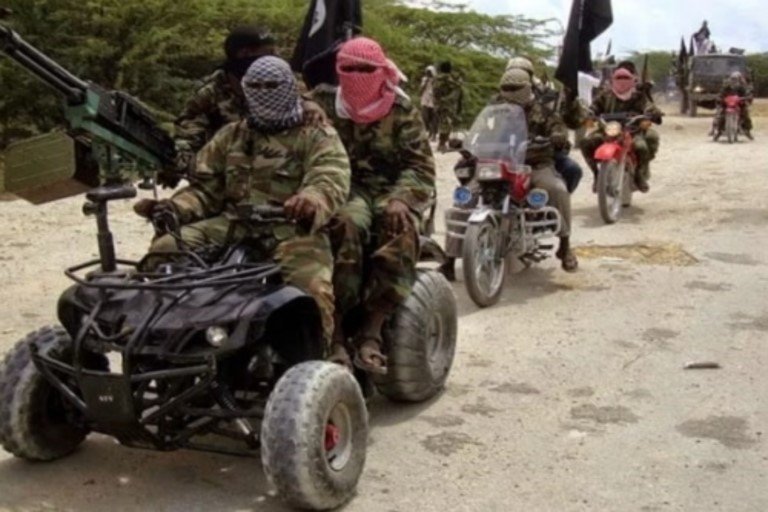
Their alleged concerns were based on the fears that the now better equipped military will be used to confront the terrorists groups they are sympathetic towards. They appealed that the newly acquired weapons should only be used against terrorists or any other military aggression against externals and not against civilians or civil unrest.
The appeal was based on petitions of alleged human human rights abuses by the Nigerian Armed Forces, accusations of an ethnocentric conspiracy (the President had threatened to deal with criminals, insurgents and terrorists in the language they understand), the massacre lies of the #EndSARS Lekki Toll Gate debacle. They claimed the military will be deployed to decimate a particular ethnic group.
This development placed the supplier at crossroads; on the one hand it would like to support an ally in the global fight against terrorism and on the hand, it cannot ignore the expressed concerns. The US was thus compelled to demand that the weapons should expressly only be used to fight terrorists or external aggression.
The country, Nigeria, was now in a difficult position; it cannot effectively deploy the new weapons to battle insecurity as it desires as its hands were tied on the conditions for deployment.
It meant that, to allow the military to deploy the weapons to effectively battle insecurity arising from insurgents, terrorists and the now emboldened and growing bandits, the FG had to turn logic on its head and declare bandits as terrorists even though ‘banditry’ is clearly different from ‘terrorism’ (in the simplest of terms, bandits have no ideology and/or sectarian/anti-government designs. These are the fundamental tenets of terrorism. Bandits are consumed with a desire to commit criminal acts for material and physical gains).
The observant reviewer of the gazetted ruling will have noticed that the acts bandied together are already covered comprehensively under extant criminal laws of the Federal Republic of Nigeria; we were basically reinventing the wheel without any mechanical advantage.
This is where it gets tricky; this singular act sets a dangerous precedent. It means:
1). Any group of regular criminals can be tagged as a terrorist group. Please let that sink in and mull on same.
It means that the full might of the Nigerian Armed Forces can be deployed, on a whim or sentiment, against criminal groups and activities that would/should normally be handled by the NPF and other related law enforcement agencies.
It should be noted that the Nigerian Armed Forces, under the law, has a principal mandate of protecting the territorial and existential integrity of the country. These are threats posed by terrorists, not bandits. Summarily, insurgents and terrorists are attacking the territorial and existential integrity of the country. Bandits, however vile, vicious or malicious, are at the end of the day, just criminals.
Also, please note that thus does not mean the military cannot be deployed to combat internal insecurity developments. This is however a secondary role, a support activity, and should only happen in instances of the NPF and other related law enforcement agencies being overrun and overwhelmed as had become obvious in the case in point.
However, even in this support activity, the criminals are STILL designated as regular criminals (bandits) and not as terrorists. There has never been a need, historically or globally, to redefine/rebrand banditry as terrorism. The only exception are in cases of authoritarian regimes (Nigeria is a democracy). This leads to the second concern.
2). This precedent means that any administration can now deploy the full might of the military on a whim or suspicion of criminality. One may ask, what’s the big deal? Aren’t all of these ways to deal insecurity a severe blow?
This is a rather simplistic review. Most supporters of this position have clearly not thought through the different scenarios. If the current circumstances allegedly makes the case for the redefinition, the fear is, what happens in the future? The open ended, blanket application should prove a cause for grave concern. If the current development supports the narrative or bias, what happens in the future when today’s supporters are on the other side of the conversation? If we justify Bandits (armed robbers in local parlance) in the NE, NW, NC to be designated as terrorists, would we be so accommodating of military grade attacks against such criminals in the SW, SS and SE? Please bear in mind that the military is not trained for civil level engagements.
I’d like to bring mind a recent development. Lagos State had an issue with a local criminal group, Bado. They terrorized the Ikorodu axis of the state and were a scorching menace. The state government took charge through community action and the support of the NPF and quelled situation.
Now imagine if the Nigerian Armed Forces was deployed to bomb those areas? It is common knowledge that the southern parts of the country are more densely populated than the northern areas. Incursions into civilian settlements and the likelihood of civilians casualties would be greatly increased.
This is because under the amended ruling as gazetted, they are no longer a mere criminal group, they have been elevated to the status of a terrorist group.
The last sentence above should give any deep thinking person cause for concern; we may have just laid the foundations for the radicalization of criminals!
They would no longer be focused on just pursuing their criminal endeavors for physical and material gains, they would be compelled to create, develop and assign ideologies for their groups.
This is because (1) a new Vista of opportunities and (2) motivation has been presented to them. Being designated as terrorist groups, they can now openly seek partnership and funding from terrorism sponsors globally. They also now have an existential threat and would necessarily strive for self preservation by embracing all the extremes of terrorism.
It must be understood that criminals rarely get deterred by consequences; they just raise the stakes to justify the risks. As terrorist designates, continuance of their criminal activities has become a zero sum game.
Any ‘real’ terror group would then fundamentally have ready-made, local terror cells to align with and fund. Inadvertently, a marketplace for criminals would have been created; terrorists looking for local ‘terror’ cells to recruit and promote and local criminals seeking access to terror funds and logistics support.
This is the extrapolated reality and consequence of this development of redefining bandits as terrorists. We may be breeding a nest of vipers.
It is important for the reader to note understand that this article is not meant to condemn the use of military might to quell insecurity, far from it. This writer believes that the full might of the country should be brought to bear in addressing and redressing the security situation. The concerning contention is that we did not need to rebrand banditry as terrorism to achieve this objective. This precedence has far reaching consequences, beyond the immediate palliative, as highlighted above.
How did we get into this mess?
Well, it started with state governments, who as designate Chief Security Officers of their states abdicating their responsibilities. As the earlier stated case of Bado in Ikorodu, Lagos State has shown, these local criminal activities can be curtailed at state levels. However, our Governors chose to play politics with such a sensitive matter and declared they do not have control over the NPF (how then was the Lagos State Government, under Akinwunmi Ambode, able to quell its own incidence of banditry?).
The dereliction of duty emboldened the criminals and expanded their territories and activities. Further, a good number of the bandits and their leaders appear to have close relations or business with these politicians and Governors.
It is on record that some were the political militia arm and enforcement units for politicians during electioneering campaigns. They had been variously funded and armed as political thugs against opponents, communities and to destabilize the electioneering process.
It was this corruption and complicity that limited the effectiveness of the NPF and necessitated the deployment of the military for support.
Another culpable reference that facilitated this quagmire is the irresponsibility of the media. For commercial gains, they sold their souls, and the lives of other citizens by promoting real and false ethno-religious and partisan narratives.
A key lesson to learn from this development is that the system is not encouraged to pursue accountability and, much like the hollow doctrine of necessity that installed the VP, Dr. Goodluck Jonathan as President subsequent to the confirmed demise of President Umar Musa Yar’adua, we have reprised a second act of madness.
As with that previous situation, we complicated a simple development for which we had competent, extant laws in place, by creating a convoluted aberration. Neither our jurisprudence nor our democracy have been strengthened based on these doctrines of necessity. In fact, we may have succeeded, in both instances, in creating landmines for the future.
As a nation, our biggest challenge is the continuous feeding of the monsters of ethnic, religious and partisan bigotry. This loophole has continously been exploited and leveraged by self-interest seeking individuals and organizations.
We have suffered variously over the course of our national existence because of these mischievous and evil obfuscation and complication of simple matters as we continue to view life through the colored lenses of ethnic, religious and partisan narratives. This was how past generations created problems for the present generation.
It appears the lessons have not been learned…
Orisha writes from New Jersey, United States





